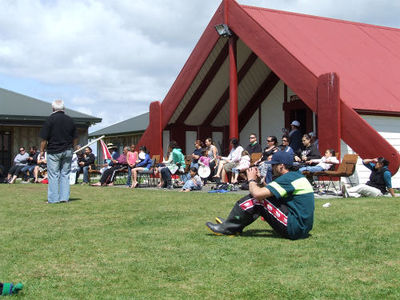Culture
| Learning and Teaching in Practice | |
|---|---|
| Module 1: Learner characteristics | |
| Culture | Introduction | Diversity | Maori and Pacific Island learners | Summary |
|
The implications of cultural competence for teachers and learners and understanding how to be inclusive are considered. The way in which universal design accommodates diversity and can be applied to educational environments is explored. The concept of cultural diversity in learning and the needs of Maori and Pacific Island learners is also covered.
|
Cultural competence
What does this mean? The ability to interact effectively with people of different cultures is a good start, but the practice of cultural competence will vary across different disciplines.
What is regarded as "normal" might depend on your experience and background - even within one culture, women may behave differently from men, and older people have different norms than the young. The bottom line of good interaction will be not to cause offence! But of course there is much more to think about, especially for teachers and their relationship with learners. Read this interesting blog posting by Randy Miller, a teacher in a multicultural American school. On a practical level, members of ethnic or socio-economic minorities often have poorer outcomes in learning, health and employment. Apart from ethical reasons, it makes economic sense for a nation to look after its disadvantaged members.
In Aotearoa/New Zealand there is a conscious commitment to cultural awareness in many fields including education, and the basis for this commitment is our founding document, the Treaty of Waitangi, signed by representatives of Maori and Pakeha communities on February 6th, 1840. You can read the English text here. You will study this and its implications for teaching in New Zealand in more detail later in this course. Visitors and new residents in any country also experience cultural awareness - and the lack of it - in daily life. Most people show interest and goodwill towards others, and one of the main reasons that people travel is to learn about other cultures.
The experience of students from other cultures who come to New Zealand has been studied by Malcolm Lewthwaite in his 1996 paper "A study of international students' perspectives on cross-cultural adaptation" (International Journal for the Advancement of Counselling 19:167-185, 1996.) You can access it here and it makes very interesting reading - but his most telling statement (p.1) is "the greatest block to adaptation was lack of intercultural communicative competence."
